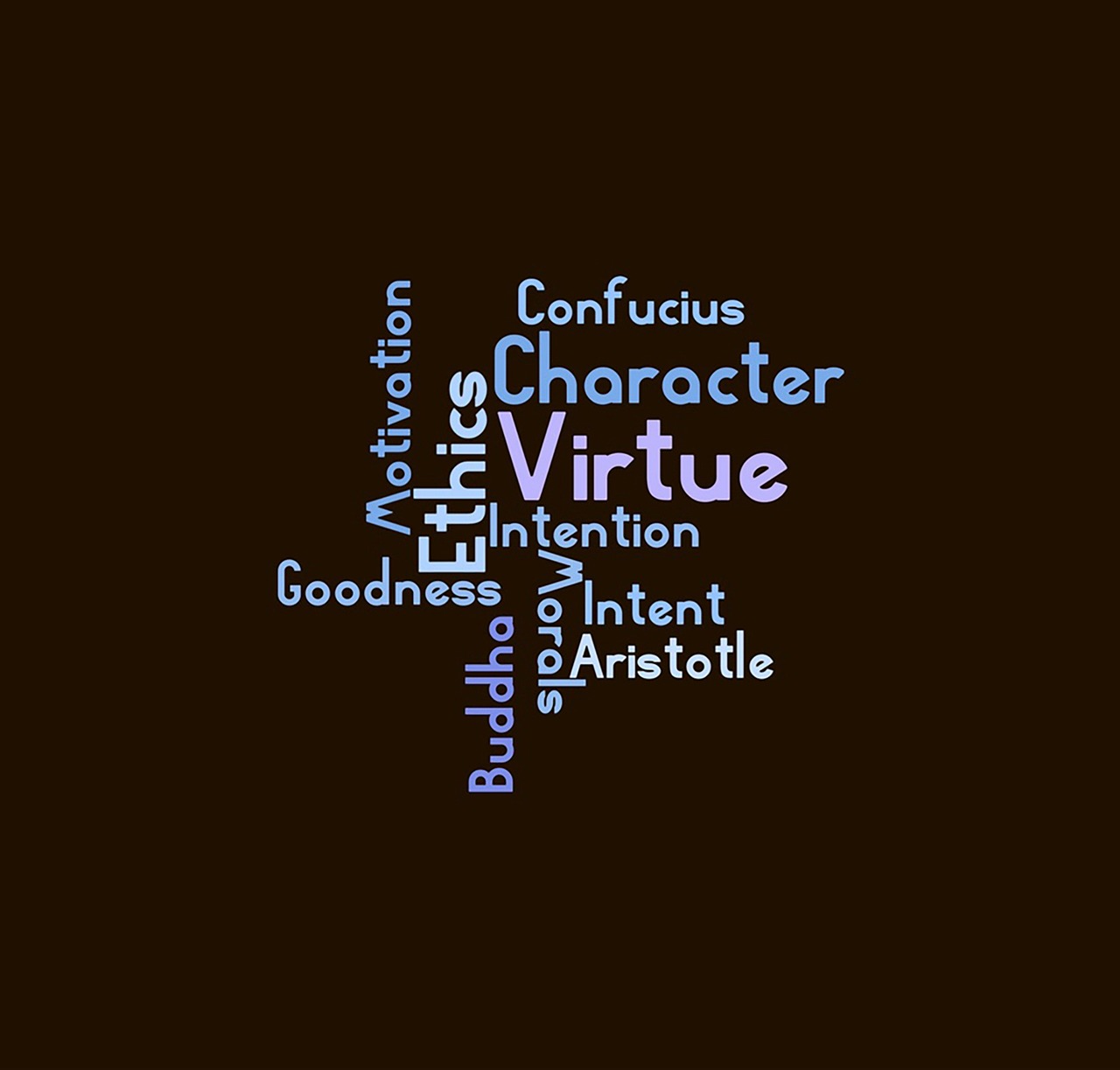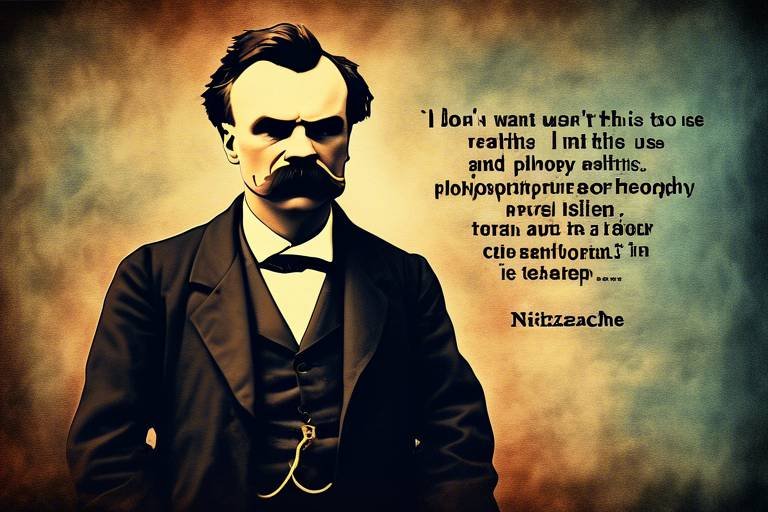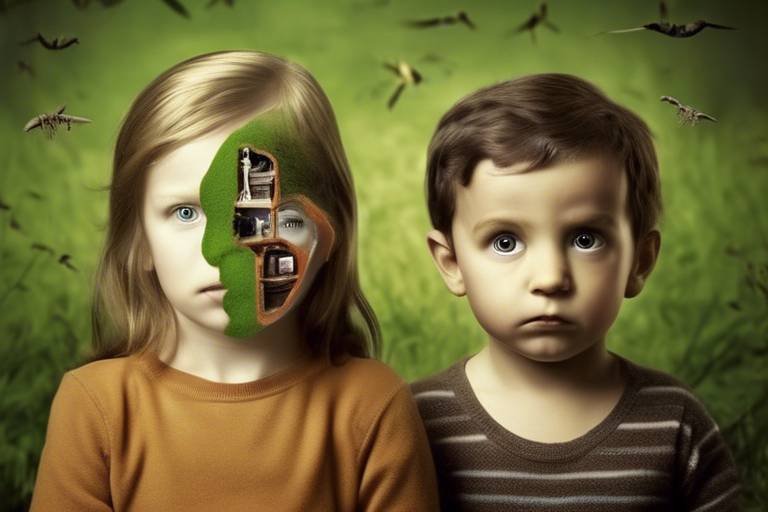Debating the Concept of Universality in Ethics
In a world that is increasingly interconnected yet profoundly diverse, the debate surrounding the concept of universality in ethics has never been more pertinent. The idea that there could be a single ethical framework applicable to all individuals, regardless of their cultural backgrounds, is both enticing and contentious. Imagine a world where everyone adheres to a common set of moral principles—sounds appealing, right? But as we dive deeper into this topic, we encounter a labyrinth of philosophical inquiries and real-world implications that challenge the very essence of what it means to be ethical.
At its core, the discussion of universality in ethics revolves around the question: can there be a universal moral standard that transcends cultural differences? This question is not just an academic exercise; it has real-world ramifications that affect everything from international relations to local community interactions. As we navigate through this complex landscape, we will explore various perspectives, historical developments, and the impact of globalization on ethical discussions.
When we think about ethics, we often picture a set of guidelines that govern our behavior. But what happens when these guidelines vary from one culture to another? Herein lies the crux of the debate: the tension between cultural relativism—the idea that moral beliefs are shaped by cultural contexts—and universalism, which posits that certain ethical principles are universally applicable. This tug-of-war between opposing viewpoints creates a rich tapestry of discussion, one that is as vibrant as it is complex.
Throughout history, thinkers from various backgrounds have contributed to this ongoing dialogue. From ancient philosophers who pondered the nature of good and evil to contemporary scholars who analyze the implications of globalization on ethical standards, the quest for understanding universality in ethics has evolved significantly. Each contribution adds depth to the debate, highlighting the multifaceted nature of morality and the challenges of establishing a common ground.
As we embark on this exploration, we will also delve into arguments for and critiques of universal ethics. Supporters of universalism argue that certain rights—like the right to life and freedom from torture—should be upheld universally, irrespective of cultural context. On the flip side, critics warn that imposing universal standards may lead to ethical imperialism, where dominant cultures override local customs and beliefs. This balancing act between respecting cultural diversity and advocating for universal rights is a tightrope walk that requires careful consideration.
In our increasingly globalized world, the implications of this debate become even more pronounced. The interconnectedness of societies fosters a unique environment where ethical discussions can transcend borders, yet it also brings to light the challenges of reconciling differing moral frameworks. As we examine case studies and real-world applications of universal ethical principles, we will uncover the practical implications of this discourse, providing a clearer picture of how these theories operate in practice.
Ultimately, the question of universality in ethics is not just an abstract philosophical concern; it is a pressing issue that demands our attention as we navigate the complexities of modern life. By understanding the nuances of this debate, we can better appreciate the diverse moral landscape that shapes our world and consider the potential for a more inclusive ethical framework moving forward.
- What is universality in ethics? Universality in ethics refers to the idea that there are moral principles that apply to all people, regardless of cultural or personal differences.
- How does cultural relativism challenge universal ethics? Cultural relativism argues that moral beliefs are shaped by cultural context, suggesting that what is considered ethical can vary significantly across different societies.
- Can universal ethics coexist with cultural diversity? This is a complex question; while universal ethics aims for common standards, it must also respect and acknowledge the richness of cultural differences.
- What role does globalization play in ethical discussions? Globalization connects societies and can lead to shared ethical standards, but it also raises concerns about cultural imperialism and the erosion of local moral frameworks.

The Definition of Universality in Ethics
Understanding the concept of universality in ethics is essential for anyone delving into moral philosophy. At its core, universality refers to the idea that certain ethical principles are applicable to all individuals, regardless of their cultural, social, or personal backgrounds. Imagine a set of moral guidelines that transcends borders and speaks to the innate sense of right and wrong shared by humanity. This notion is not just a lofty ideal; it serves as a foundation for many ethical theories that aim to establish a common ground for moral judgments.
In the realm of ethics, the significance of universality cannot be overstated. It challenges us to think beyond our immediate experiences and consider the broader implications of our actions. For instance, when we say that "murder is wrong," we are asserting a universal moral truth that should hold regardless of cultural context. This perspective encourages a sense of global responsibility and empathy, urging us to recognize our shared humanity. However, the path to understanding universality is fraught with complexities, as it often intersects with various cultural norms and beliefs.
To better grasp the implications of universality in ethics, we can categorize its key elements:
- Common Moral Principles: These are the foundational beliefs that many cultures agree upon, such as the value of human life and the importance of honesty.
- Global Ethical Standards: These standards aim to create a framework for international human rights, promoting justice and equality across different societies.
- Interconnectedness of Humanity: This aspect emphasizes that, despite cultural differences, we are all part of a global community, sharing similar challenges and aspirations.
However, the debate surrounding universality in ethics is not without its detractors. Critics argue that imposing a universal standard can lead to ethical imperialism, where dominant cultures impose their values on others. This raises an important question: can we truly have a set of universal ethics without disregarding the rich tapestry of cultural diversity? The answer lies in finding a balance—acknowledging universal principles while respecting local customs and beliefs.
In conclusion, the definition of universality in ethics serves as a crucial starting point for exploring moral philosophy. It invites us to consider the possibility of a shared ethical framework that can guide our actions and decisions in an increasingly interconnected world. As we navigate the complexities of modern life, understanding and applying universal ethical principles can help foster a more compassionate and just society.

Historical Perspectives on Universal Ethics
When we dive into the historical perspectives on universal ethics, we embark on a journey that spans centuries, cultures, and philosophical thought. The idea that there exists a set of moral principles applicable to all humanity is not a modern invention; rather, it has roots that can be traced back to ancient civilizations. Think about it: the quest for a universal moral code is much like searching for a common language that transcends the barriers of culture and time.
In ancient Greece, philosophers like Socrates and Plato laid the groundwork for ethical universalism. Socrates, through his dialectical method, encouraged individuals to seek truth and virtue, suggesting that there are universal truths that apply to everyone. Plato furthered this idea with his concept of the Forms, proposing that the ideal forms of justice and goodness exist beyond our physical world, accessible through reason and intellect. This philosophical groundwork set the stage for later thinkers to explore the nature of morality in a more universal context.
Fast forward to the Enlightenment period, where the likes of Immanuel Kant championed the idea of a categorical imperative, a principle that asserts that one should act only according to that maxim which one can will to become a universal law. Kant's philosophy emphasized that moral actions should be guided by reason and that ethical considerations should apply universally, regardless of personal or cultural differences. His work sparked significant debates, as it suggested that ethics could be grounded in rationality rather than tradition or societal norms.
However, the discussion of universal ethics has not been without its critics. The rise of cultural relativism in the 20th century posed a significant challenge to the notion of universal ethics. Thinkers such as Franz Boas argued that moral codes are deeply rooted in cultural contexts, and thus, what is considered ethical in one society may not hold the same weight in another. This perspective highlights the complexities of trying to impose a single moral framework across diverse cultures.
To illustrate the evolution of these ideas, consider the following table that summarizes key historical figures and their contributions to the debate on universal ethics:
| Philosopher | Contribution | Time Period |
|---|---|---|
| Socrates | Promoted the pursuit of truth and virtue. | Ancient Greece |
| Plato | Introduced the concept of ideal forms of justice. | Ancient Greece |
| Immanuel Kant | Developed the categorical imperative. | 18th Century |
| Franz Boas | Argued for cultural relativism in moral codes. | 20th Century |
As we can see, the historical perspectives on universal ethics have evolved significantly, reflecting the changing dynamics of society and philosophical thought. Each era has contributed to a richer understanding of what it means to have a universal moral code, with proponents and critics alike shaping the discourse. The tension between universalism and relativism continues to be a hot topic today, as we navigate a world that is increasingly interconnected yet culturally diverse.
In conclusion, the historical landscape of universal ethics is a tapestry woven with the threads of various philosophies and cultural critiques. Understanding these perspectives not only enriches our comprehension of ethics but also challenges us to think critically about our own moral beliefs in a global context.
- What is the main idea of universal ethics? Universal ethics posits that there are moral principles that apply to all individuals, regardless of cultural or personal differences.
- Who are some key figures in the history of universal ethics? Key figures include Socrates, Plato, Immanuel Kant, and Franz Boas, each contributing unique perspectives to the debate.
- How does cultural relativism challenge universal ethics? Cultural relativism argues that moral codes are shaped by cultural contexts, suggesting that imposing a universal moral framework may not be feasible or just.

Cultural Relativism vs. Universalism
When we dive into the vibrant ocean of ethics, we often find ourselves swimming between two significant currents: cultural relativism and universalism. These two perspectives represent opposing views on how we should approach moral principles and values across different cultures. At its core, cultural relativism suggests that moral codes are shaped by cultural contexts, implying that what is considered right or wrong can vary significantly across societies. For instance, practices that are acceptable in one culture may be deemed unethical in another. This viewpoint encourages a sense of respect and understanding for diverse traditions, recognizing that no single culture holds an absolute moral authority.
On the flip side, universalism posits that there are fundamental ethical principles that transcend cultural boundaries. Proponents of this view argue that certain rights and values, such as justice, equality, and freedom, should be upheld by all societies, regardless of cultural differences. Think of universalism as a sturdy bridge connecting various islands of culture, allowing for the exchange of ideas and fostering a sense of global community. This perspective raises critical questions: Are there moral truths that every individual should adhere to? Can we find common ground in our shared humanity?
The tension between cultural relativism and universalism often leads to heated debates. Advocates of cultural relativism might argue that universalism imposes a Western-centric moral framework on diverse cultures, potentially leading to a form of ethical imperialism. They emphasize the importance of understanding and appreciating cultural practices in their own right, without imposing external judgments. On the other hand, universalists may counter that some practices, such as gender discrimination or human rights violations, should never be tolerated, regardless of cultural context. This clash of ideologies prompts us to reflect on the implications of our ethical beliefs and the potential consequences of our judgments.
To illustrate this complex relationship, consider the following table that summarizes key differences between cultural relativism and universalism:
| Aspect | Cultural Relativism | Universalism |
|---|---|---|
| Definition | Moral codes are culturally specific. | There are universal moral principles applicable to all. |
| Focus | Emphasizes cultural diversity and context. | Emphasizes commonalities and shared values. |
| Ethical Judgments | Judgments are relative to cultural norms. | Judgments are based on universal standards. |
| Examples | Practices like arranged marriages. | Human rights advocacy. |
Ultimately, the debate between cultural relativism and universalism is not just academic; it has real-world implications. As we navigate our increasingly interconnected globe, understanding these perspectives is crucial for fostering dialogue and cooperation among diverse cultures. The challenge lies in finding a balance that respects cultural uniqueness while also advocating for universal ethical standards that protect the dignity and rights of individuals everywhere. So, where do you stand in this ethical tug-of-war? Are you more inclined to respect cultural practices, or do you believe in the necessity of universal moral principles?
- What is cultural relativism? Cultural relativism is the belief that moral codes and ethical standards are shaped by cultural contexts and vary from one society to another.
- What is universalism? Universalism is the idea that there are fundamental ethical principles that apply to all human beings, regardless of cultural differences.
- How do cultural relativism and universalism conflict? The conflict arises when cultural relativism argues against imposing external moral standards, while universalism advocates for universal human rights and ethical norms.
- Can both perspectives coexist? Yes, finding a balance between respecting cultural diversity and advocating for universal principles is essential for ethical discourse.

Arguments for Universal Ethics
The debate surrounding universal ethics is not just an academic exercise; it has profound implications for how we interact with one another in an increasingly interconnected world. Advocates of universal ethics argue that there exists a set of moral principles that transcend cultural boundaries and apply to all human beings, regardless of their backgrounds. But why should we embrace such a concept? Let's dive into some compelling arguments that support the idea of universal ethics.
First and foremost, one of the strongest arguments for universal ethics is the concept of human rights. The Universal Declaration of Human Rights, adopted by the United Nations in 1948, serves as a prime example of a universal ethical framework that asserts certain rights are inherent to all individuals. This document highlights the belief that every person deserves dignity and respect, irrespective of their nationality, culture, or beliefs. Can we really argue against the notion that everyone should have the right to life, liberty, and security? This foundational idea forms the bedrock of many ethical discussions and reinforces the case for universal ethics.
Moreover, universal ethics fosters a sense of global solidarity. In a world rife with conflict and division, having a common ethical framework can unite people under shared values. Imagine a world where individuals prioritize compassion and justice over cultural differences. This could lead to collaborative efforts in addressing global issues such as poverty, climate change, and inequality. When we recognize our shared humanity, we can work together towards solutions that benefit everyone, not just a select few.
Another argument for universal ethics is the idea of moral consistency. If we accept that certain ethical principles are universally applicable, we can avoid the pitfalls of moral relativism, where anything goes based on cultural context. This inconsistency can lead to justifications for harmful practices, such as discrimination or violence, under the guise of cultural norms. By advocating for universal ethics, we can create a more stable moral landscape where actions can be judged against a common standard, fostering accountability and justice.
Additionally, universal ethics encourages dialogue and understanding among diverse cultures. When we engage in discussions about shared ethical principles, we open the door to learning from one another. This exchange can lead to a richer understanding of different perspectives and promote tolerance. It's like a potluck dinner where everyone brings their unique dish—together, we create a feast of ideas that nourish our collective understanding of morality.
Finally, the advancement of technology and globalization has made the world smaller, amplifying the need for a universal ethical framework. As we navigate issues like digital privacy, environmental sustainability, and global health, having a common set of ethical guidelines can help us address these challenges more effectively. The interconnectedness of our modern world demands that we think beyond local customs and embrace a broader perspective that considers the welfare of all humanity.
In conclusion, the arguments for universal ethics are compelling and multifaceted. They encompass the protection of human rights, the promotion of global solidarity, the quest for moral consistency, the encouragement of dialogue, and the necessity of adapting to our interconnected world. As we continue to grapple with ethical dilemmas in our daily lives, embracing the concept of universal ethics may be the key to fostering a more just and harmonious society. So, the next time you find yourself pondering an ethical question, consider: could there be a universal principle at play?
- What are universal ethics? Universal ethics refers to moral principles that are believed to apply to all individuals, regardless of cultural or societal differences.
- Why are human rights important in the context of universal ethics? Human rights serve as a foundational framework for universal ethics, asserting that all people deserve dignity and respect.
- How does globalization impact the need for universal ethics? Globalization connects diverse cultures and societies, making it essential to establish common ethical guidelines to address shared challenges.

Critiques of Universal Ethics
The debate surrounding universal ethics is far from settled, and it faces significant critiques that challenge its validity and applicability. One of the most prominent arguments against universal ethics is the concern that it oversimplifies the rich tapestry of human moral experience. Critics argue that by attempting to establish a common moral framework, universal ethics risks ignoring or marginalizing the diverse cultural contexts that shape individual and collective moral beliefs. This perspective posits that ethical principles cannot be universally applied without consideration of the unique historical, social, and cultural factors that influence moral judgments.
Moreover, opponents of universal ethics often highlight the issue of moral imperialism. This critique suggests that advocating for a single set of ethical standards can lead to the imposition of one culture's values over others, effectively undermining the moral agency of diverse communities. For instance, a universal approach might promote ideas that are fundamentally at odds with local customs and traditions, creating friction and conflict rather than fostering understanding and cooperation. This raises an important question: can a universal ethic truly respect the individuality of different cultures, or does it inevitably lead to a homogenization of moral values?
Another significant critique revolves around the practicality of universal ethics. Critics argue that establishing a universally accepted moral framework is not only challenging but perhaps impossible. Given the vast array of beliefs and practices around the world, the idea of a one-size-fits-all ethical system seems unrealistic. Furthermore, the dynamic nature of morality—where ethical beliefs evolve over time—complicates the notion of universality. As societies change, so too do their moral frameworks, making it difficult to pin down what constitutes a universal ethical principle.
To illustrate these critiques, consider the following table that summarizes the key objections to universal ethics:
| Critique | Description |
|---|---|
| Oversimplification | Universal ethics may ignore the complexities of diverse cultural contexts. |
| Moral Imperialism | Imposing one culture's values can undermine the moral agency of others. |
| Practicality | Establishing a universally accepted moral framework is seen as unrealistic. |
| Dynamism of Morality | As societies evolve, so do their moral frameworks, complicating universality. |
Additionally, the challenge of **moral pluralism** cannot be overlooked. This perspective acknowledges that there are multiple valid moral systems, each offering unique insights and values. Proponents of moral pluralism argue that rather than striving for a universal ethic, we should embrace the diversity of moral beliefs and seek to understand them on their own terms. This approach fosters dialogue and respect among different cultures, allowing for a more nuanced understanding of ethics in a globalized world.
In conclusion, while the concept of universal ethics presents an appealing vision of a common moral ground, it is essential to critically examine its feasibility and implications. The critiques outlined here serve as a reminder that ethics is not merely an abstract concept but a deeply rooted and evolving aspect of human life. As we navigate the complexities of our interconnected world, it becomes increasingly important to balance the quest for universal principles with an appreciation for the rich diversity of moral traditions.
- What is universal ethics? Universal ethics refers to the idea that there are fundamental moral principles that apply to all individuals, regardless of cultural or social differences.
- Why do some people criticize universal ethics? Critics argue that universal ethics oversimplifies diverse moral perspectives, risks moral imperialism, and is impractical due to the dynamic nature of morality.
- What is moral pluralism? Moral pluralism is the view that multiple moral systems can coexist, each providing valid insights into ethical issues.

Case Studies in Universal Ethics
When we dive into the waters of universal ethics, it’s not just about abstract theories and philosophical debates. Real-world applications can often illuminate the complexities and challenges of applying universal ethical principles. Let's explore a few compelling case studies that demonstrate how universal ethics can manifest in various contexts, highlighting both successes and hurdles.
One prominent example is the Universal Declaration of Human Rights (UDHR), adopted by the United Nations in 1948. This document serves as a global standard for human rights, asserting that all individuals are entitled to certain inalienable rights, regardless of their nationality, culture, or beliefs. The UDHR has been a cornerstone for many international laws and treaties, yet its application often varies significantly from one country to another. For instance, while some nations embrace these principles wholeheartedly, others may selectively interpret or outright ignore them, raising questions about the universality of such rights.
Another fascinating case study can be found in the realm of environmental ethics. The Paris Agreement, a landmark international treaty on climate change, aims to unite countries in the fight against global warming. It embodies a universal ethical principle: the responsibility to protect our planet for future generations. However, the commitment levels and enforcement vary widely among nations. Some countries have made significant strides in reducing carbon emissions, while others prioritize economic growth over environmental concerns. This divergence illustrates the tension between universal ethical commitments and local interests, prompting discussions about how to reconcile these differences.
In the field of healthcare, the Global Health Initiative provides another rich case study. This initiative seeks to address health disparities worldwide, promoting access to essential healthcare services for all individuals. The ethical principle here is clear: everyone deserves the right to health, regardless of their socio-economic status. Yet, the implementation of such universal healthcare principles often faces obstacles, including funding limitations, political will, and cultural attitudes towards health. In many regions, the struggle to provide equitable healthcare reveals the challenges of applying universal ethics in practice.
Moreover, the ongoing debates surrounding gender equality offer additional insights. The global movement for women's rights advocates for universal principles of equality and justice. Organizations like UN Women work to eliminate discrimination and violence against women, promoting empowerment and equal opportunities. However, cultural norms and societal structures in various regions can hinder progress. In some societies, deeply entrenched patriarchal systems resist these universal ideals, leading to a clash between local traditions and global ethical standards.
These case studies highlight a crucial point: while the idea of universal ethics is compelling, its application is often fraught with challenges. The diversity of cultural contexts, political landscapes, and economic realities can complicate the pursuit of a shared moral framework. Yet, they also serve as reminders of the importance of striving for common ground in our increasingly interconnected world.
In summary, examining real-world applications of universal ethics through case studies like the UDHR, the Paris Agreement, global health initiatives, and gender equality movements reveals the complexities inherent in applying these principles. While the aspiration for a universal ethical framework is noble, the reality often involves navigating a labyrinth of cultural, political, and social factors. Understanding these dynamics is essential as we continue to engage in discussions about the relevance and feasibility of universal ethics in our global society.
- What is universal ethics? Universal ethics refers to the idea that there are moral principles that apply to all individuals, irrespective of cultural or societal differences.
- How does cultural relativism challenge universal ethics? Cultural relativism argues that moral values are not absolute and can vary significantly across cultures, which can conflict with the notion of universal ethical standards.
- Can universal ethics be applied in practice? While universal ethics provides a framework, its application can be complicated by local customs, laws, and socio-economic factors.
- What role does globalization play in universal ethics? Globalization fosters interconnectedness, which can promote the spread of universal ethical principles but also highlight disparities in their application.

The Role of Globalization in Ethical Universality
Globalization has become a buzzword in our interconnected world, but have you ever stopped to think about its profound impact on ethics? As cultures blend and interact more than ever before, the debate surrounding ethical universality takes on new dimensions. It’s like watching a pot of diverse ingredients simmer together, creating a stew of moral perspectives that can either complement or clash with one another.
At its core, globalization refers to the increasing interdependence of countries through trade, communication, and cultural exchange. This phenomenon has not only transformed economies but has also reshaped our ethical landscapes. With the internet, social media, and international travel, ideas about what is right and wrong are no longer confined to local customs and traditions. Instead, they are constantly influenced by a myriad of global perspectives. Imagine standing at the crossroads of a bustling marketplace, where every stall represents a different ethical viewpoint, each vying for your attention.
One significant aspect of globalization is the way it fosters dialogue among diverse cultures. This interaction can lead to a greater understanding of universal ethical principles, as individuals from different backgrounds share their beliefs and practices. For instance, concepts such as human rights, environmental justice, and equality have gained traction on a global scale, transcending cultural boundaries. These principles often find their way into international agreements and treaties, illustrating a shared commitment to certain ethical standards. However, this raises an important question: Can we truly agree on what is universally right when our backgrounds and experiences differ so vastly?
On the flip side, globalization also highlights the tensions between cultural relativism and universalism. While some argue that ethical standards should adapt to local contexts, others contend that certain rights and values should be upheld universally. This clash can lead to ethical dilemmas, as seen in debates about practices like child labor or gender equality, which may be viewed differently across cultures. It’s a bit like trying to play a game with different sets of rules; without a common understanding, the game can quickly become chaotic.
Moreover, the role of multinational corporations in globalization cannot be overlooked. These entities often operate across borders, which raises questions about their ethical responsibilities. Should they adhere to the ethical standards of their home country, or should they adapt to the norms of the countries in which they operate? This dilemma illustrates the complexities of ethical universality in a globalized economy. As companies navigate these waters, they must consider the implications of their actions on both local communities and the global stage.
In conclusion, globalization plays a pivotal role in shaping the discourse around ethical universality. It both challenges and enriches our understanding of what it means to be ethical in a diverse world. As we continue to engage with global perspectives, the quest for a universally accepted ethical framework remains an ongoing journey, one that requires open-mindedness, dialogue, and a willingness to learn from one another.
- How does globalization affect local cultures?
Globalization can lead to cultural exchange and enrichment but may also result in cultural homogenization, where local customs and traditions are overshadowed by dominant global influences. - Can ethical principles be universal?
Many argue that certain ethical principles, such as human rights, should be universal, while others believe that ethics must be contextually relevant to be meaningful. - What role do multinational corporations play in ethical discussions?
Multinational corporations often face scrutiny regarding their ethical practices, particularly when operating in countries with different cultural norms and legal standards.

Future Directions in Ethical Universality
As we stand at the crossroads of a rapidly evolving world, the concept of ethical universality is more pertinent than ever. The **future directions** in this field are not just theoretical musings but practical pathways that can shape our global society. With the increasing complexity of global interactions, we are faced with new challenges that demand a reconsideration of what it means to have universal ethical principles. The question isn't merely whether a universal ethic exists, but how we can cultivate a framework that is both inclusive and adaptable.
One of the key areas to explore is the role of **technology** in shaping ethical norms. With the rise of artificial intelligence and social media, ethical dilemmas are emerging at an unprecedented rate. For instance, consider the ethical implications of data privacy, algorithmic bias, and digital citizenship. These issues not only challenge existing ethical frameworks but also offer an opportunity to develop a more nuanced understanding of universality that incorporates diverse perspectives. As we navigate these technological waters, we must ask ourselves: How can we ensure that our ethical standards evolve in tandem with our technological advancements?
Moreover, the **impact of globalization** cannot be overstated. As cultures intersect more than ever before, there is a growing need for a dialogue that transcends borders. This interconnectedness presents both a challenge and an opportunity. On one hand, it can lead to a dilution of local ethical standards; on the other, it can foster a richer, more diverse ethical discourse. The challenge lies in finding a balance between respecting cultural differences and advocating for universal principles that protect human dignity. This balance will require ongoing dialogue and collaboration among ethicists, policymakers, and community leaders worldwide.
In addition to these considerations, we must also focus on the **importance of education** in promoting ethical universality. Instilling a sense of global citizenship in future generations can help cultivate a shared understanding of ethical principles that resonate across cultures. Educational institutions have a vital role to play in this process, fostering critical thinking and empathy among students. By integrating discussions of universal ethics into curricula, we can prepare young minds to engage thoughtfully with the ethical challenges of tomorrow.
Lastly, as we look to the future, we should embrace the idea of **interdisciplinary collaboration**. The complexities of ethical universality cannot be effectively addressed by any single discipline. Instead, we need a concerted effort that brings together insights from philosophy, sociology, psychology, and even the sciences. This collaborative approach can yield innovative solutions that are both ethically sound and practically viable. For instance, interdisciplinary research can uncover how different cultural contexts shape ethical perceptions, thereby enriching our understanding of universality.
In summary, the future of ethical universality is not a distant dream but a pressing reality that requires our immediate attention. By harnessing technology, fostering global dialogue, prioritizing education, and promoting interdisciplinary collaboration, we can create a more inclusive and adaptable ethical framework. The road ahead may be fraught with challenges, but it is also filled with opportunities for growth and understanding. As we navigate this complex landscape, let's remain committed to the pursuit of universal ethics that honor both our shared humanity and our rich diversity.
- What is ethical universality? Ethical universality refers to the idea that there are certain moral principles that apply to all individuals, regardless of cultural or societal differences.
- Why is ethical universality important? It provides a common ground for addressing global issues and fosters mutual understanding among different cultures.
- How can technology impact ethical universality? Technology can create new ethical dilemmas, necessitating a reevaluation of existing ethical frameworks to ensure they remain relevant.
- What role does education play in ethical universality? Education can promote awareness and understanding of universal ethical principles, preparing future generations to engage with complex ethical issues.
Frequently Asked Questions
- What is universality in ethics?
Universality in ethics refers to the idea that certain moral principles are applicable to all individuals, regardless of their cultural, social, or personal backgrounds. It suggests that there are fundamental ethical standards that everyone should adhere to, promoting a sense of shared morality across diverse societies.
- How does cultural relativism challenge universal ethics?
Cultural relativism posits that moral values and practices are shaped by cultural contexts, implying that there is no single ethical standard that applies universally. This perspective challenges universal ethics by arguing that what is considered right or wrong can vary significantly from one culture to another, making it difficult to establish a common moral framework.
- What are some arguments in favor of universal ethics?
Proponents of universal ethics argue that it fosters global cooperation, promotes human rights, and provides a foundation for addressing moral issues that transcend cultural boundaries. They believe that a shared ethical framework can lead to greater understanding and harmony among different societies, ultimately benefiting humanity as a whole.
- What critiques exist against universal ethics?
Critics of universal ethics raise concerns about its practicality and inclusivity. They argue that imposing a universal moral standard can overlook the unique values and traditions of different cultures, potentially leading to ethical imperialism. Additionally, they question whether it is feasible to apply the same ethical principles to diverse contexts without losing their significance.
- How do case studies illustrate the application of universal ethics?
Case studies provide real-world examples of how universal ethical principles are applied in various situations, such as human rights advocacy, environmental ethics, and global health initiatives. These examples highlight both the successes and challenges of implementing universal ethics, demonstrating its relevance and complexity in practical scenarios.
- What role does globalization play in the debate on universal ethics?
Globalization has significantly impacted ethical perspectives by increasing interconnectedness among cultures and societies. This phenomenon has facilitated the exchange of ideas and values, leading to a more robust dialogue about universal ethics. However, it also raises questions about how to balance local customs with global moral standards.
- What are the future directions for ethical universality?
Future developments in ethical universality may focus on creating a more inclusive framework that respects cultural diversity while promoting shared values. As global challenges such as climate change and social justice become more pressing, the discourse around universal ethics will likely evolve to address these issues collaboratively and effectively.



















